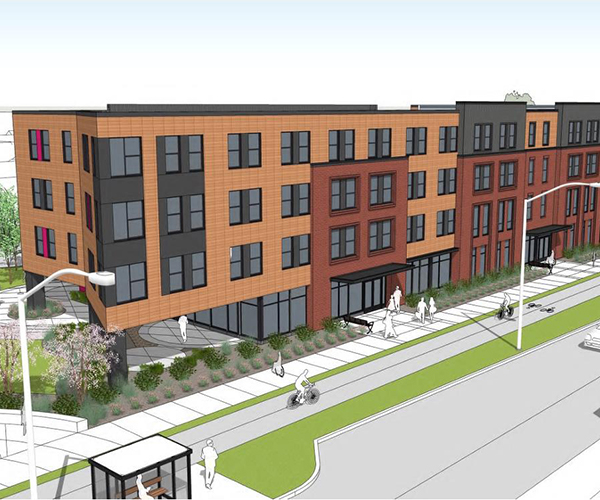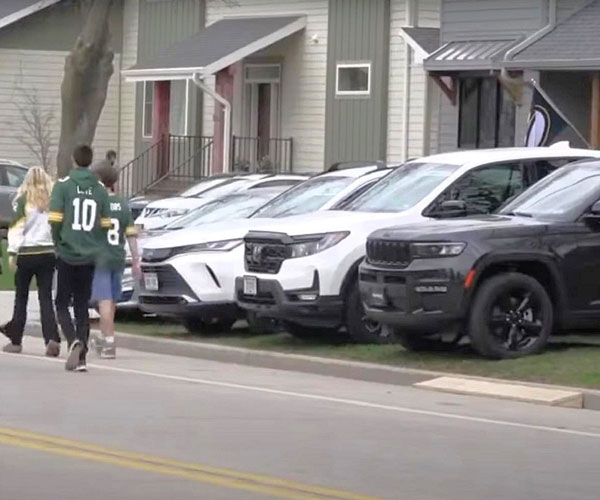The Colectivo formed when a group of friends decided it was time to stop talking about Cleveland’s problems and start doing something about them. In spring 2006, a core group of about 15 members pooled their funds of more than $7,000 for causes ranging from a community refugee program to a learning garden for neighborhood youth. “We really want to take a grassroots approach,” says Judy Wright, one of the founding members. “As a giving circle, we are in a position to pool our money and give to any project we see as worthwhile.”
The Colectivo is wrapping up its most successful giving year. After receiving 156 proposals, an increase from 50 in 2006, the group provided $13,500 in grants to six projects in 2007. Anyone can apply for grants ranging from $500 to $5,000, and giving is based on consensus, says member John McGovern.
“It’s all very organic,” McGovern explains. “There is so much going on in this city underneath the surface that needs to be recognized. By supporting the small projects that are under the radar, we can start to see what is spawned from the contributions we make.”
Apart from small donations here and there, most Colectivo members are new to philanthropy, says Wright. Remaining open and inclusive to interested contributors, Wright hopes the Colectivo can get Clevelanders started on a lifetime of philanthropy. “The nature of the organization is to draw people in,” she says. “We need to take this group of people and connect them to our city.”
“Nonprofits, schools and municipal agencies felt the need for trained, oriented volunteers,” Griffiths says. “And the individuals and families who wanted to volunteer didn’t know how.”
So Hands On Northeast Ohio connects trained, background-checked volunteers with local organizations and civic education programs.
Initial grant funding spawned Ohio’s first Hands On affiliate in Northeast Ohio and is allowing it to take the necessary steps to become a 501(c)(3) nonprofit. But in order to flourish in Cleveland’s nonprofit sector, the organization needed additional financial support. In May, the Civic Innovation Lab awarded $30,000 to Hands On Northeast Ohio. And in July, the organization launched its first formal nonprofit partnerships.
Hands On Northeast Ohio partners with local organizations for 10 to 15 projects per month that focus on critical issue areas such as the environment, senior services and children’s education and development. All projects occur regularly, allowing busy professionals to choose causes that fit into their time and interests.
“You’re a part of something with like-minded folks,” Griffiths explains. “When you start to foster relationships with the people you work with, Cleveland and Cuyahoga County become much smaller. Getting to know the city intimately deepens connections to Cleveland and produces tangible benefits to the community.” Griffiths says the number of projects per month will grow with more volunteers, a figure already surpassing 100.
Millie’s Million
“I lost count of how many late-night runs I had down to the vet,” Celli says. “It was truly a nightmare. I basically lived on the highway, holding Millie’s leg together with one hand, driving with the other.”
But during one of these visits to an animal hospital waiting room, Celli conceived the idea for Millie’s Million, an online center for information and support to owners of dogs with the disease. “There was a man pacing with tears streaming down his face,” Celli recalls. “Through his sobbing he said, ‘I’m having to kill my best friend because I don’t have the money to save her.’ ”
Celli wanted to provide financial support for dogs and their owners dealing with cancer. However, a complete treatment for one dog is between $4,000 and $10,000. Celli quickly realized the need was too great and the funds were too small to donate monetary support. So she put her energy into creating a safe haven and information center for dog owners.
Celli partnered with Rachel Simpson, who was baking pet treats to help pay for her dog Lola’s cancer treatments, to create Millie’s Million, now in the final stages of becoming an incorporated nonprofit. “We started Millie’s Million as an Internet hospital waiting room, a place for people to meet and talk about what is going on with their dog,” says Celli.
Millie’s Million offers a road map for owners to find help in the medical and emotional process.
The newest source of information is its video center, an online forum launched in August where veterinarians answer frequently asked questions. “When owners hear the C-word, it’s like the word overpowers your brain,” says Celli. “After the shock, so many people are riddled with questions. I wanted them to know there is a place where they can find answers.”
One of the most difficult obstacles people face after their dogs are diagnosed with cancer is the lack of understanding from family and friends. Millie’s Million provides a support system to dog owners coping with overwhelming emotions.
“I just finished corresponding with a woman who lost two dogs to cancer within a 24-hour period,” says Celli. “She’s hurting, and she doesn’t feel like anyone really cares. Sometimes all anyone wants is the dignity of having their feelings validated.”



